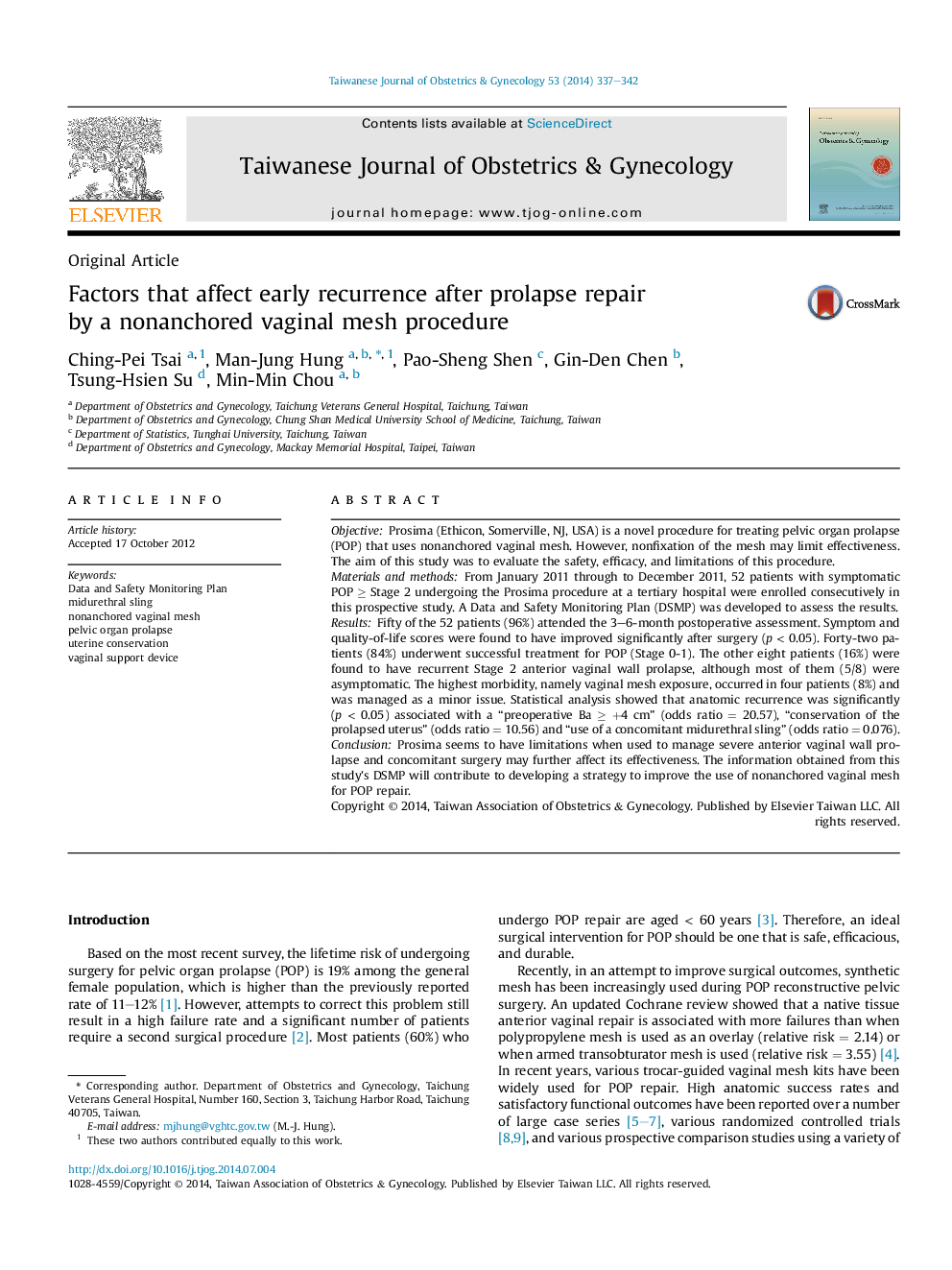| Article ID | Journal | Published Year | Pages | File Type |
|---|---|---|---|---|
| 3975202 | Taiwanese Journal of Obstetrics and Gynecology | 2014 | 6 Pages |
ObjectiveProsima (Ethicon, Somerville, NJ, USA) is a novel procedure for treating pelvic organ prolapse (POP) that uses nonanchored vaginal mesh. However, nonfixation of the mesh may limit effectiveness. The aim of this study was to evaluate the safety, efficacy, and limitations of this procedure.Materials and methodsFrom January 2011 through to December 2011, 52 patients with symptomatic POP ≥ Stage 2 undergoing the Prosima procedure at a tertiary hospital were enrolled consecutively in this prospective study. A Data and Safety Monitoring Plan (DSMP) was developed to assess the results.ResultsFifty of the 52 patients (96%) attended the 3–6-month postoperative assessment. Symptom and quality-of-life scores were found to have improved significantly after surgery (p < 0.05). Forty-two patients (84%) underwent successful treatment for POP (Stage 0-1). The other eight patients (16%) were found to have recurrent Stage 2 anterior vaginal wall prolapse, although most of them (5/8) were asymptomatic. The highest morbidity, namely vaginal mesh exposure, occurred in four patients (8%) and was managed as a minor issue. Statistical analysis showed that anatomic recurrence was significantly (p < 0.05) associated with a “preoperative Ba ≥ +4 cm” (odds ratio = 20.57), “conservation of the prolapsed uterus” (odds ratio = 10.56) and “use of a concomitant midurethral sling” (odds ratio = 0.076).ConclusionProsima seems to have limitations when used to manage severe anterior vaginal wall prolapse and concomitant surgery may further affect its effectiveness. The information obtained from this study's DSMP will contribute to developing a strategy to improve the use of nonanchored vaginal mesh for POP repair.
